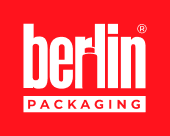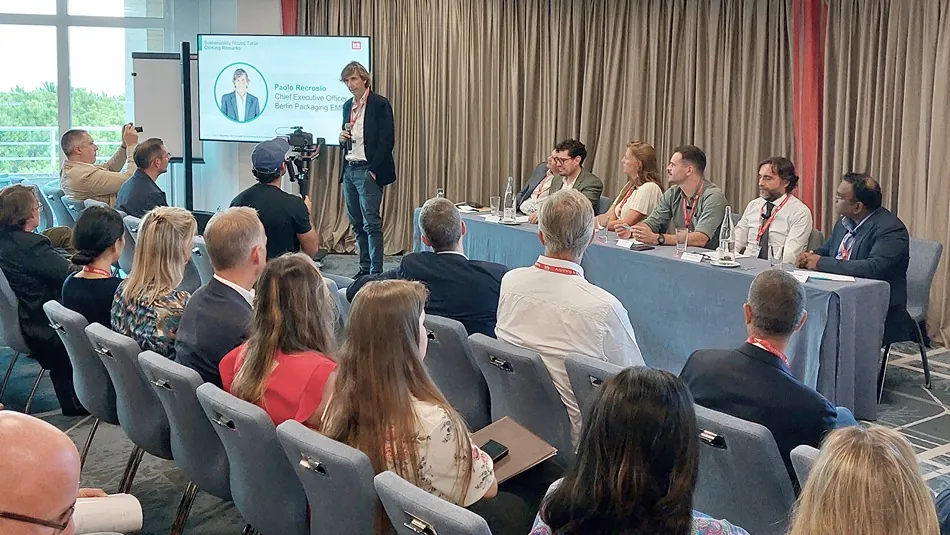Berlin Packaging, the world’s largest Hybrid Packaging Supplier® specialising in the supply of glass, plastic and metal packaging and closures, has organised the “Shaping the future of sustainable packaging” round table, offering its stakeholders a debate on sustainability in the packaging world of today and tomorrow.
As part of Luxe Pack 2023, the international trade fair dedicated to innovation in packaging in Monaco, Berlin Packaging invited Quantis, an environmental consulting company, and partners Rituals, Argotier, and Tapì Group to discuss the future of sustainable packaging: emerging consumer trends, the latest regulations, the role of eco-design and the power of collaboration.
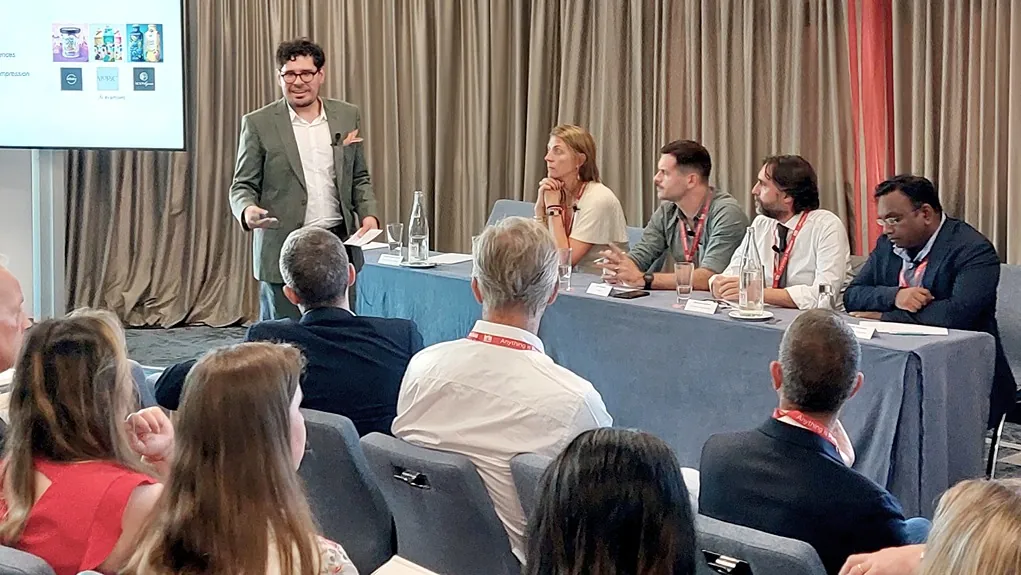
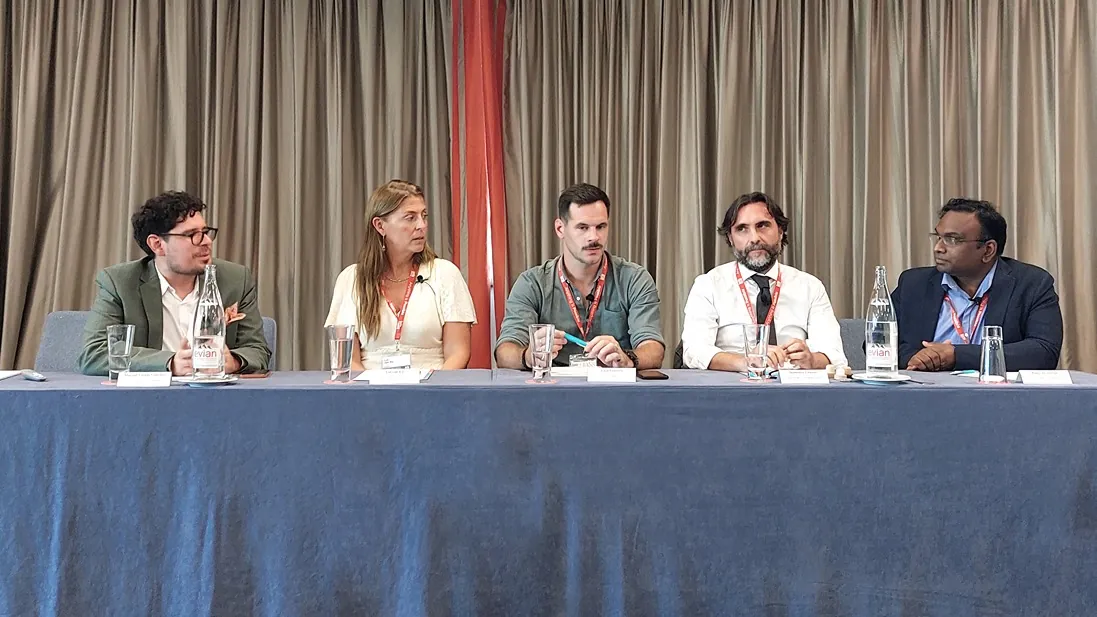
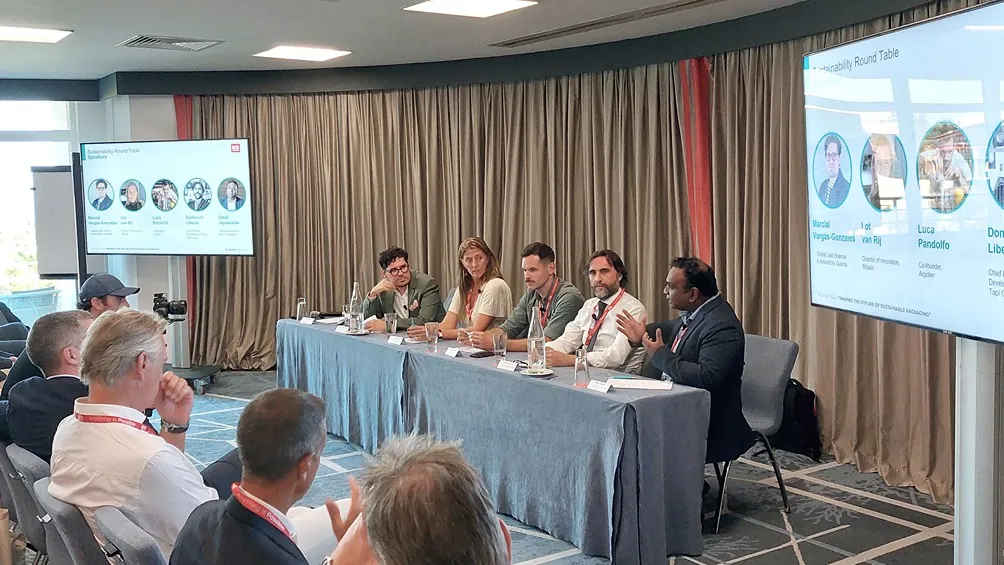
Sustainability is crucial for the future of people and the planet, and packaging plays a crucial role in this process. We are aware that only through dialogue with all the stakeholders, first and foremost our customers and suppliers, can we overcome the current challenges together, which involve consumers becoming increasingly demanding on sustainability issues.
Dario Bassetti
Chief Marketing Officer, Berlin Packaging EMEA
SCENARIOS & TRENDS1
Even though manufacturers, retailers and regulators are aware of the need for greater sustainability, to date there is no global agreement on values and measures. In addition, given also the lack of consistent priorities, it is up to the individual brands to determine their own timelines and actions. Often business decision makers find themselves in a situation where they have to choose between investing efforts and resources in the sustainability of the product supply chain, or in sustainable packaging, whereas they should prioritise both aspects. As far as packaging is concerned, much higher levels of innovation and flexibility will be required to cope with the pressure and potential critical issues deriving from the ongoing trends.
Marcial Vargas
Within this scenario, Quantis has, in fact, identified five main trends that will change the rules of the game in the packaging industry and raise the level of performance in the next five to ten years. First of all, sustainability requirements emerge, namely, the growing pressure to reduce packaging waste through regulations that are in the process of being drafted but which will become increasingly more strict. Next, the growth of e-commerce should be taken into account, which may lead to a convergence of primary and secondary packaging and to new designs that facilitate the demand for greater automation of logistics processes.
In addition, the change in consumers’ purchasing preferences should be considered, as they are increasingly driven by factors such as comfort, personalisation, “local hero” products, and in any case interested in both well-being and value for money. This and the increasing strain on costs in the value chain of packaging results in the reduction of retail sales margins.
Finally, artificial intelligence and other new technologies can simplify the entire packaging design process, significantly improving its quality and help companies in reducing material waste, thanks to a precise monitoring of the design and material selection phases2.
2Source: Future Market Insights report
SOLUTIONS OF TODAY AND TOMORROW
Currently, there are already some solutions in the market that embrace the trends that have been identified and that highlight important directions, especially at the technical level:
- Minimal use of materials: it will be essential to support packaging manufacturers to increase the amount of post-consumer recycled (PCR) raw material by 2030 and 2040, in addition to engaging in extended producer responsibility (EPR) programmes to improve the separated collection of waste. In parallel, the circularity and recyclability of packaging will need to be further promoted. Among the circular solutions developed by Tapì Group is NEOS, an innovative technology that reduces the product’s carbon footprint as a result of the adoption of polymers from renewable sources.
- Replacement of materials and more accurate choices: it becomes essential to pay attention to sustainability right from the design phase, adopting comparable and measurable criteria that are shared between the different stakeholders in the supply chain and integrated throughout the production process. The case of Argotier, a company specialising in “ready-to-drink” cocktails, is particularly interesting because it found in the Berlin Packaging catalogue a product that already meets its needs: a lightweight bottle with a high recycled glass content (up to 75%) and a programme to offset the emissions generated in its production: the Helium Mixology bottle.
- Implementation of sustainable practices: the design of new packaging solutions must necessarily take into consideration recycling, but even before reuse, through products that last over time and can be refilled. For example, with Rituals, Berlin Packaging has over the years re-designed hundreds of products with a view to circularity, introducing refilling systems for day and night creams, body creams and scented sticks, noting that more and more customers are accepting refillable options.
BERLIN PACKAGING'S COMMITMENT TO SUSTAINABILITY
The Berlin Packaging business model provides maximum freedom in the use of materials and processes that can be optimised, focusing on three main areas: circularity, optimisation, reuse, which are integrated into the services and drive innovations and business proposals.
At Berlin Packaging, we have chosen to put sustainability at the centre of our strategy, precisely because we are aware that it is an indispensable priority. We are the world's largest Hybrid Packaging Supplier® and we feel we must drive the future of sustainable packaging, accelerating the creation of value and pursuing our vision of being a reference player also in terms of sustainability. We make a daily commitment to ensuring our business and that of our customers become increasingly sustainable, also with the help of a team dedicated to sustainability and our company's own innovation engine Studio One Eleven.
Paolo Recrosio
CEO, Berlin Packaging EMEA
Focusing on lighter and optimised products, where possible recycled and recyclable, designing systems that involve the value chain to introduce reusable and refillable solutions, launching innovative circular materials, all being part of the company’s approach that has already achieved significant results. In its first Sustainability Report, Berlin Packaging highlighted that in 2022 it enabled its customers to eliminate over 2,000 metric tons of greenhouse gas emissions and conducted 120 Life-Cycle Assessments, supporting them in achieving their sustainability goals.
Over the past year, Berlin Packaging has aligned its ESG commitments with globally recognised metrics, adhering to the United Nations Global Compact and setting emissions reduction targets in line with the Science Based Targets Initiative (SBTi). Berlin Packaging aims to:
- By 2030, make a 25% reduction in direct and indirect CO2 emissions generated by the company and emissions related to the value chain, monitoring energy consumption and implementing specific initiatives to reduce emissions and transition to renewable energy sources.
- Offer customers a range of fully recyclable products.
- Continue to develop products with a reduced environmental impact, thanks to the optimal use of materials and the development of reuse/refill solutions.
In addition, the company announced that it has obtained the LEED Gold certification for the new EMEA headquarters in Milan, converting a former warehouse and using cutting-edge technologies that enable energy savings, once again demonstrating a tangible commitment to sustainability.
Finally, Berlin Packaging received the EcoVadis Silver rating, an internationally recognised platform that evaluates company sustainability, ethical practices, and social responsibility.
